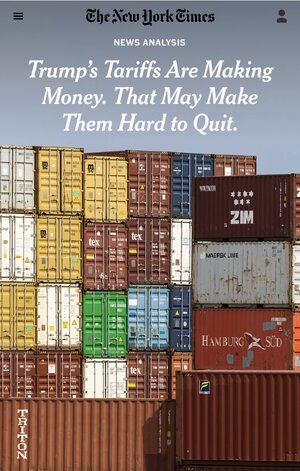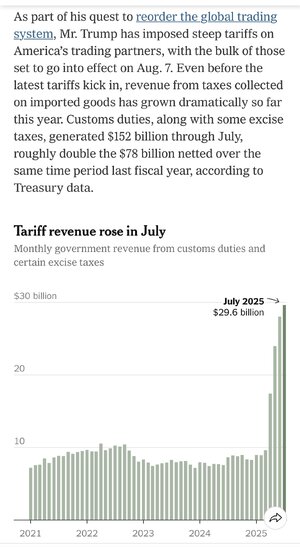Trump’s ‘Slap in the Face’ Puts Neutral Switzerland in Trade-War Crossfire
Swiss business leaders and politicians are scrambling to understand why their close relationship with Washington has suddenly fractured

—>
“…In a land famed for its neutrality and order, the Swiss reacted with shock and confusion to Trump’s decision to
impose a 39% tariff—higher than all but three nations on last week’s
executive order: Laos, Myanmar and Syria.
Switzerland is one of the few nations whose Aug. 1 tariff rate was higher than Trump’s “Liberation Day” threats in April.
… “Switzerland is not a threat to U.S. national security,” said Jan Atteslander, member of the executive board at Swiss business organization Economiesuisse. “Our chocolate and watches don’t endanger U.S. manufacturing.”
… Switzerland earns its every second franc from foreign trade and around 19% of its exports go to the U.S., its largest market, according to
UBS. The relationship is a two-way street, however:
Switzerland is the sixth-largest foreign investor in the U.S., according to Economiesuisse, with major companies such as
Nestlé, Roche and
Novartisand others supporting some 400,000 American jobs.
…
But the key issue for Trump is that the nine million-strong nation has one of the largest trade imbalances with the U.S.
The deficit in goods has skyrocketed this year due to a surge in pharmaceutical and gold imports looking to get to the U.S. ahead of anticipated tariffs. The deficit was nearly $50 billion this year through May, ranking as the fifth-largest goods-trade imbalance among U.S. trading partners.
In June, the U.S. Treasury Department added Switzerland to its watchlist for unfair economic and currency practices. During Trump’s first term, it labeled Switzerland a currency manipulator, accusing it of weakening the franc to aid exports. The central bank has said it intervenes in currency markets to stabilize inflation, not for trade advantage.…”






